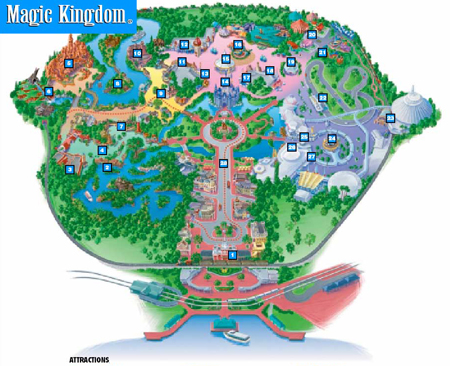Sharepoint's DisneyWorld Style Strategy


Dennis Howlett thinks the promise of Enterprise 2.0 is years away and feels Dion Hinchcliffe's ROI value accrual model is more evangelizing hand waving than evidence of any substantial uptake.
From my perspective I think we're at a point where many of the tech movements that characterized the period of economic expansion (which sadly left the planet last year) will be subsumed into the mainstream.
2.0 suffixes, 'social' business and media, innovation companies, the semantic web and associated technologies and many other offshoot movements are gradually mutating and merging, much as innovative musical genres become absorbed into popular culture. Once it's happened it's hard to remember the power demonstrated by those who sprinted ahead of the pack.
From a collaboration perspective, as I've written here previously, it's all about business use case and utility. Nobody with a budget cares what the sub cult is they are buying into - they care about what's in it for them and the ability to solve their problems.
I know a lot of people in the enterprise trenches and have discussed dozens of 'case histories' - warts and all - as they struggle to gain traction and join warring silos.
Most of these people need public exposure of the workings of their internal environment like a hole in the head: first because their environments either have pretensions to, or are successfully the tactical mechanism that enables company strategy to be executed. This is essentially top secret in most cases.
The second reason is that collaboration environments are power pressure cookers: politically the change that successful initiatives trigger require delicate diplomacy and increasingly sophisticated management strategies as situations unfold.
There is very little upside to opening up your environment to critique from the public peanut gallery. Where marketing practitioners love public airings of their creations - all publicity is good publicity - the reverse is true with the secret sauce of what makes a company run more efficiently.
Each business has unique needs with plenty of exceptions and barely repeatable processes. Successful environments are typically a meld of content management, communications software and the ability to search and find.
The Average Joe User
The average command and controlled employee Joe uses search in a browser to find stuff online and email to communicate: most people write documents and save them somewhere on a hard drive. Training and support are high on their care and feeding needs for all but the most basic work change in their lives.
The expectation is that new tools will make their lives easier, but 99% of the world has no interest in the history and pedigree of technologies, just as most people view a car as a device to get from A to B. Enthusiasts who know what engine and drive train is propelling them down the road are a tiny minority - most people expect the steering wheel and pedals to get them to their destination with no new learning curve. The reality is that what we currently know as Enterprise 2.0 is the cutting edge of innovation in many areas, and has an agility that keeps the movement a dozen or so months ahead of the bigger players. Demonstrating immediate utility gets vendors into the workflow of companies and they will remain there until something better comes along.
The parallel reality however is that the bigger players get to make the later moves in the game, buying up trend setting companies or simply copying and rolling up their innovative ideas into larger suites.
SharepointWorld
The Walt Disney company managed to buy 27,000 acres of land in Florida for DisneyWorld in the sixties - twice the size of Manhattan - without anyone noticing before announcing their intentions. I'm making the analogy with Sharepoint because instances are installed everywhere, and it's inevitable that Microsoft will announce the next generation Office suite that leverages that foundation and the cloud.
The other big players, who historically do well in hard times thanks to deep pockets, have similar plans for large scale solutions that can be rolled out enterprise wide.
This is a challenging year for movements such as Enterprise 2.0, as the need to keep innovating and creating new tools - some of which reflect greater societal consumer computing changes - while staying ahead of the heavyweight pack and gaining extra heft and credibility is more difficult now.
The tighter economic business world is currently dominated by accountants, but it's even more important to support the independent community to keep the innovation flowing.
DisneyWorld was given permission by the state of Florida to establish their own, autonomous government, known as the Reedy Creek Improvement District, to control the destiny and infrastructure of their magic kingdom.
While DisneyWorld is a pleasant enough solution to many people's recreational needs, nestled at the intersection of two major freeways, you essentially go there for the experience.
Crafting your own entertainment solution on your terms within the Magic Kingdom® domain is likely to result in an unpleasant experience...not unlike the one business units deploying shadow IT have with their internal IT security people.